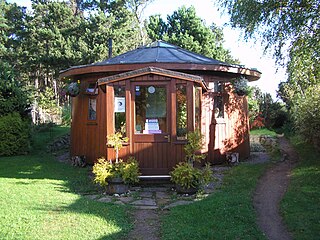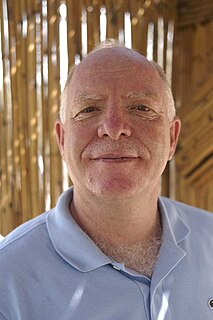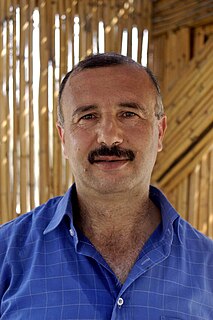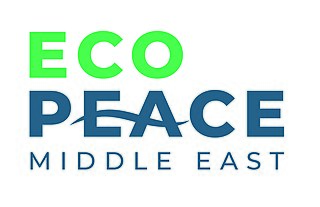Related Research Articles

The environmental movement, also including conservation and green politics, is a diverse philosophical, social, and political movement for addressing environmental issues. Environmentalists advocate the just and sustainable management of resources and stewardship of the environment through changes in public policy and individual behavior. In its recognition of humanity as a participant in ecosystems, the movement is centered on ecology, health, and human rights.
Industrial ecology (IE) is the study of material and energy flows through industrial systems. The global industrial economy can be modelled as a network of industrial processes that extract resources from the Earth and transform those resources into commodities which can be bought and sold to meet the needs of humanity. Industrial ecology seeks to quantify the material flows and document the industrial processes that make modern society function. Industrial ecologists are often concerned with the impacts that industrial activities have on the environment, with use of the planet's supply of natural resources, and with problems of waste disposal. Industrial ecology is a young but growing multidisciplinary field of research which combines aspects of engineering, economics, sociology, toxicology and the natural sciences.

Sustainable cities, urban sustainability, or eco-city is a city designed with consideration for social, economic, environmental impact, and resilient habitat for existing populations, without compromising the ability of future generations to experience the same. The UN Sustainable Development Goal 11 defines sustainable cities as those that are dedicated to achieving green sustainability, social sustainability and economic sustainability. They are committed to doing so by enabling opportunities for all through a design focused on inclusivity as well as maintaining a sustainable economic growth. The focus also includes minimizing required inputs of energy, water, and food, and drastically reducing waste, output of heat, air pollution – CO
2, methane, and water pollution. Richard Register first coined the term ecocity in his 1987 book Ecocity Berkeley: Building Cities for a Healthy Future, where he offers innovative city planning solutions that would work anywhere. Other leading figures who envisioned sustainable cities are architect Paul F Downton, who later founded the company Ecopolis Pty Ltd, as well as authors Timothy Beatley and Steffen Lehmann, who have written extensively on the subject. The field of industrial ecology is sometimes used in planning these cities.

Findhorn Ecovillage is an experimental architectural community project based at The Park, in Moray, Scotland, near the village of Findhorn. The project's main aim is to demonstrate a sustainable development in environmental, social, and economic terms. Work began in the early 1980s under the auspices of the Findhorn Foundation but now includes a wide diversity of organisations and activities. Numerous different ecological techniques are in use, and the project has won a variety of awards, including the UN-Habitat Best Practice Designation in 1998.

Tholkappia Poonga or Adyar Eco Park is an ecological park set up by the Government of Tamil Nadu in the Adyar estuary area of Chennai, India. According to the government, the project, conceived based on the master plan for the restoration of the vegetation of the freshwater ecosystems of the Coromandel Coast, especially the fragile ecosystem of the Adyar estuary and creek, was expected to cost around ₹ 1,000 million which will include the beautification of 358 acres of land. The park's ecosystem consists of tropical dense evergreen forest, predominantly comprising trees and shrubs that have thick dark green foliage throughout the year, with over 160 woody species, and comprises six vegetative elements such as trees, shrubs, lianas, epiphytes, herbs and tuberous species. The park was opened to public by Chief Minister M. Karunanidhi on 22 January 2011 and named after the renowned Tamil scholar Tholkappiar. About 65 percent of the park is covered by water and artefacts and signages. In the first 2 months of its inauguration, nearly 4,000 children from several schools in the city and the nearby Kancheepuram and Tiruvallur districts have visited the park to learn about wetland conservation, eco-restoration and water management. While the first phase of the ecopark covered about 4.16 acres of CRZ-III area, the entire area covered under the second phase falls under this category.
The Korea Federation for Environmental Movements (KFEM) is a non-profit organization in South Korea that focuses on environmentalism.
Ecological design or ecodesign is an approach to designing products and services with special consideration for the environmental impacts of the product during its whole lifecycle. It was defined by Sim Van der Ryn and Stuart Cowan as "any form of design that minimizes environmentally destructive impacts by integrating itself with living processes." Ecological design is an integrative ecologically responsible design discipline. Ecological design can also be defined as the process within design and development of integration of environmental consideration into product and service design and development with the aim of reducing environmental impacts of products through their life cycle.
In the densely populated Hong Kong, waste is a complex issue. The territory generates around 6.4 million tons of waste each year but is able to collect and process only a minimal portion of recyclable waste. By 2019, its existing landfills are expected to be full. The government has introduced waste management schemes and is working to educate the public on the subject. On the commercial side, producers are taking up measures to reduce waste.
This page is an index of sustainability articles.

Sustainability is the capacity to endure in a relatively ongoing way across various domains of life. In the 21st century, it refers generally to the capacity for Earth's biosphere and human civilization to co-exist. It is also defined as the process of people maintaining change in a homeostasis-balanced environment, in which the exploitation of resources, the direction of investments, the orientation of technological development, and institutional change are all in harmony and enhance both current and future potential to meet human needs and aspirations. For many in the field, sustainability is defined through the following interconnected domains or pillars: environmental, economic and social. Sub-domains of sustainable development have been considered also: cultural, technological and political.

Gidon Bromberg is the Israeli Director of EcoPeace Middle East. EcoPeace is a regional organization that brings together Jordanian, Palestinian and Israeli environmentalists to promote sustainable development and advance peace efforts in the Middle East. It has offices in Amman, Bethlehem and Tel Aviv, employs 40 paid staff and actively involves hundreds of volunteers.

Munqeth Mehyar serves as Chairman and Jordanian Director of EcoPeace Middle East. EcoPeace Middle East is a unique regional organization that brings together Jordanian, Palestinian and Israeli environmentalists to promote sustainable development and advance peace efforts in the Middle East. The organization has offices in Amman, Bethlehem and Tel Aviv, employs over 40 paid staff and actively involves hundreds of volunteers.

Nader Al-Khateeb is the General Director of the Water and Environmental Development Organization (WEDO), a non-profit Palestinian organization that promotes a number of environmental programs and projects centered on water quality control, water conservation, wastewater treatment and reuse, as well as solid waste management and recycling. He was also the Palestinian Director of EcoPeace Middle East. EcoPeace Middle East is a unique regional organization that brings together Jordanian, Palestinian and Israeli environmentalists to promote sustainable development and advance peace efforts in the Middle East. It has offices in Amman, Bethlehem and Tel Aviv, employs 40 paid staff and actively involves hundreds of volunteers.

EcoPeace Middle East is a regional environmental peacebuilding organization in the Middle East, bringing together Jordanians, Palestinians, and Israelis to create shared solutions for the most water-scarce region on the planet.

The natural environment, commonly referred to simply as the environment, includes all living and non-living things occurring naturally on Earth.
Environmental peacebuilding examines and advocates environmental protection and cooperation as a factor in creating more peaceful relations. Peacebuilding is both the theory and practice of identifying the conditions that can lead to a sustainable peace between past, current or potential future adversaries. At the most basic level, warfare devastates ecosystems and the livelihoods of those who depend on natural resources, and the anarchy of conflict situations leads to the uncontrolled, destructive exploitation of natural resources. Preventing these impacts allows for an easier movement to a sustainable peace. From a more positive perspective, environmental cooperation can be one of the places where hostile parties can sustain a dialogue, and sustainable development is a prerequisite for a sustainable peace.

Jordan has been granted considerate amounts of international aid moneys toward environmental conservation. Foreign aid goes into mitigation projects in the areas of water scarcity, loss of arable land for agriculture, and renewable energy. Moreover, foreign aid goes toward the development of the eco-tourism sector. Jordan receives aid from different kinds of international agents. Principal institutions that donate money toward environmentalism in Jordan are the Global Environmental Facility (GEF), United States Agency for International Development (USAID), and World Bank. Recently, Jordan has had problems to control its budgetary deficit, which directly affects its ability to manage its environmental problems. That has made some point out that Jordan depends on International aid to control environmental-related issues. One of the examples of that is related to the construction of the East Ghor Canal.
Aytzim, formerly the Green Zionist Alliance (GZA), is a New York-based Jewish environmental organization that is a U.S.-registered 501(c)(3) tax-deductible nonprofit charity. A grassroots all-volunteer organization, Aytzim is active in the United States, Canada and Israel. The organization is a former member of the American Zionist Movement and has worked in partnership with Ameinu, the Coalition on the Environment and Jewish Life (COEJL), Hazon, Interfaith Moral Action on Climate, Interfaith Oceans, GreenFaith, Mercaz/Masorti, the National Religious Coalition on Creation Care, and the Jewish National Fund (JNF) — although Aytzim has long criticized JNF for not prioritizing sustainability and environmental justice in its actions. Aytzim's work at the nexus of Judaism, environmentalism and Zionism has courted controversy from both Jewish and non-Jewish groups.
References
- ↑ "Grand Opening Sharhabil Bin Hassneh EcoPark in Jordan – FOEME". Environment And Climate In The Middle East. 15 April 2011. Retrieved 7 November 2013.
- ↑ Abdel Rahman Sultan (20 April 2011). "Sharhabil Bin Hassneh Ecological park (SHE) opening" (PDF). Japan International Cooperation Agency. Retrieved 7 November 2013.
- ↑ "Grohe launches water project in Jordan". Trade Arabia. 14 May 2013. Retrieved 7 November 2013.
- ↑ Arwa Aburawa (19 April 2011). "New Eco-Park Opens In Jordan". Green Prophet. Retrieved 7 November 2013.